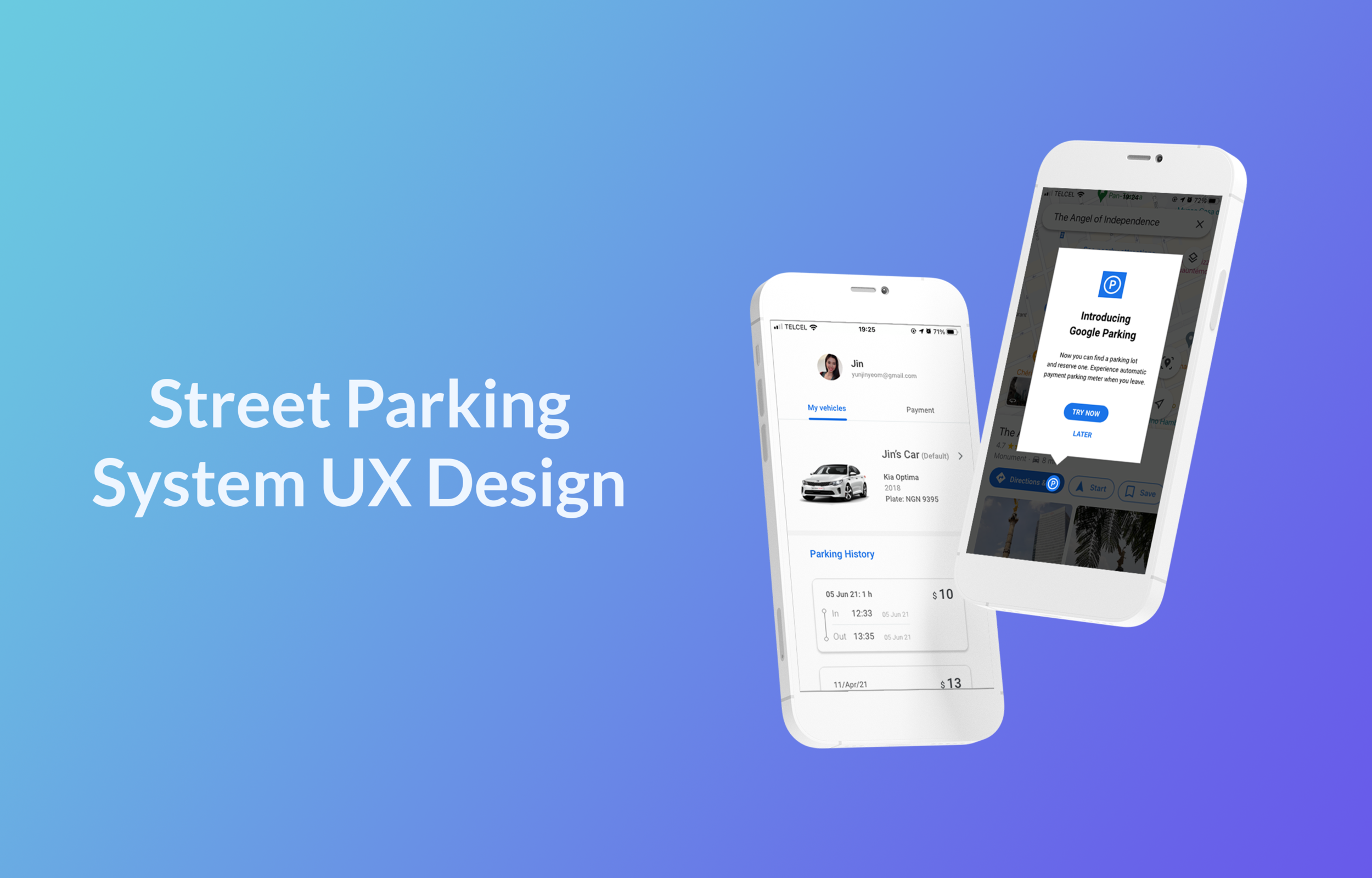
Street Parking System UX Design
DURATION
May–June 2021 (2 months)
MY ROLE
User Research, Design, and Prototype
TOOL
Adobe XD, Photoshop
Project Overview
Context
In Mexico City, Credit / Debit cards aren’t accepted, but you don’t always have enough change either…
In crowded metropolitan cities such as Mexico City, you encounter many occasions to bring your vehicle to park on the street and pay the parking meter. Once you get there, you realize that you don’t always have enough change, and downloading the parking meter payment app takes more time than making changes.
You’ll get locked if your parking meter expires or you forget to extend it.
User problem
People have difficulties registering payment methods and setting the desired end-time when they don’t know exactly how long they’ll be parked with the current parking meter application system.
Many users left a 1 star app rating because of the payment methods register problems and sign-up process. In the user interview, it is shown that they always put in extra time because don't know exactly when they will pull out the car and don’t want to come back to extend it.
Challenge
"How can I help users park on the street without worrying about the expiration time or downloading more applications?
Why is this a problem?
Outcome
Solution
Google Parking - Google maps’ new feature
It is shown that ‘payment’ and ‘sign-up' are the processes where most users feel annoyed and left 1 star in the app ratings. So, I designed it to simplify these processes by integrating into the navigation app that many users use to reach their destination. Through this new feature, they don’t have to sign up like the other apps, register a payment method that leads to errors in those apps, or download a new app at all.
Integrate with Google Maps App
Direct access on your phone as you already have it.
Manage parking time and track on your phone.
Check the parking spot in a real-time view.
Integrating with navigation Apps such as Google Maps which provide Maps based on GPS, live traffic helps the drivers to find a parking spot in a real-time view and track time.
Find and Book a Parking Space Instantly
Easy to find a parking spot near the place you’re going to.
No need to put the end-time nor extend the parking meter.
Seamless flow from navigation to parking
Effortless Payment Methods
- Leave & Autopay
Connect…
Google pay
Registered RFC number of the vehicle
Connect any payment method you want(Apple pay, Paypal, Cards, and etc…)
Street CCTV will detect your vehicle’s entry and leave, it automatically charges when you leave for the time you used. With this method, you don’t have to put the uncertain end time and no need to run to extend the parking meter.
Now let’s dive deeper into the process of how I uncovered the major user problem and designed the solution.
Process
Design Approach
Research
Current Mexico city parking apps research
What did I need to learn from carrying out the research?
A. Ultimate research goal
To explore the users’ major negative experiences with the current Mexico City street parking applications and uncover what can be improved to build an easy and quick street parking payment mechanism.
B. Concrete research objectives
Objective 1: Understand in which process users feel most annoyed & inconvenienced and quit using the apps.
Objective 2: Uncover what features make the users leave complaints and why.
Objective 3: Compare each app’s strengths and weaknesses and learn and get hints to solve usability issues in the current application experience.
3 different parking meter payment applications in one city for different zones which nearly close between them.
I collected key words from users’ ratings and reviews to understand them and why & where they experience such negative feelings.
User’s Pain Points
Analysis
Customer Journey
To see closer where the frustrations happen and what opportunities I can find in each phase.

Solution
Google Maps New Feature - Google Parking
1. Seamless parking
Users can find parking space and reserve it as well as track time and parking spots in a real-time view, integrating with Google Maps which provide Map based on GPS, live traffic.
2. Easy payment
Users can utilize a Google account to pay the parking meter payment and track billing based on the data on entering and leaving the parking space.
3. Leave & AutoPay
It charges when you leave automatically for the time you used. With this method, you don’t have to put uncertain end time, and no need to extend it.
So, How does it work?
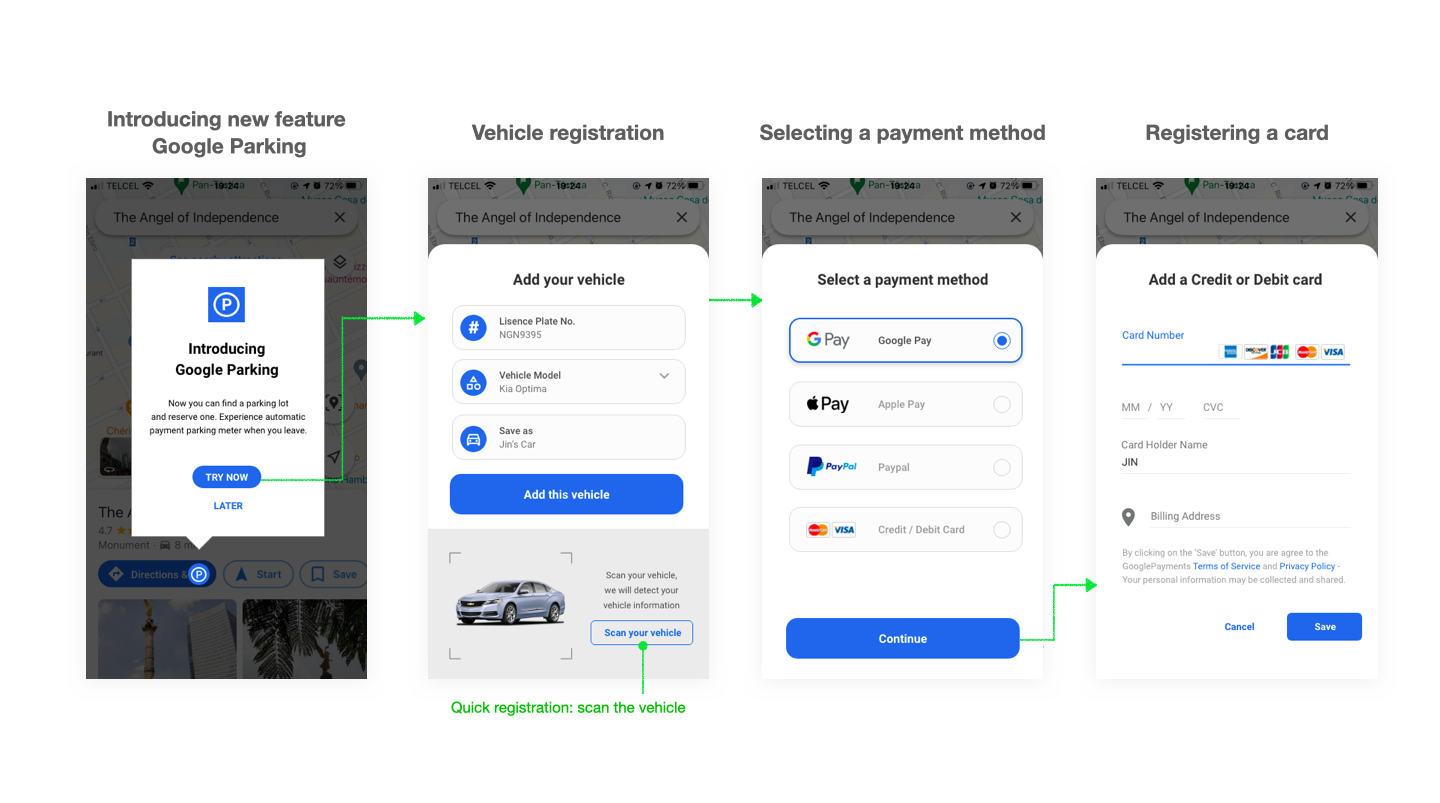
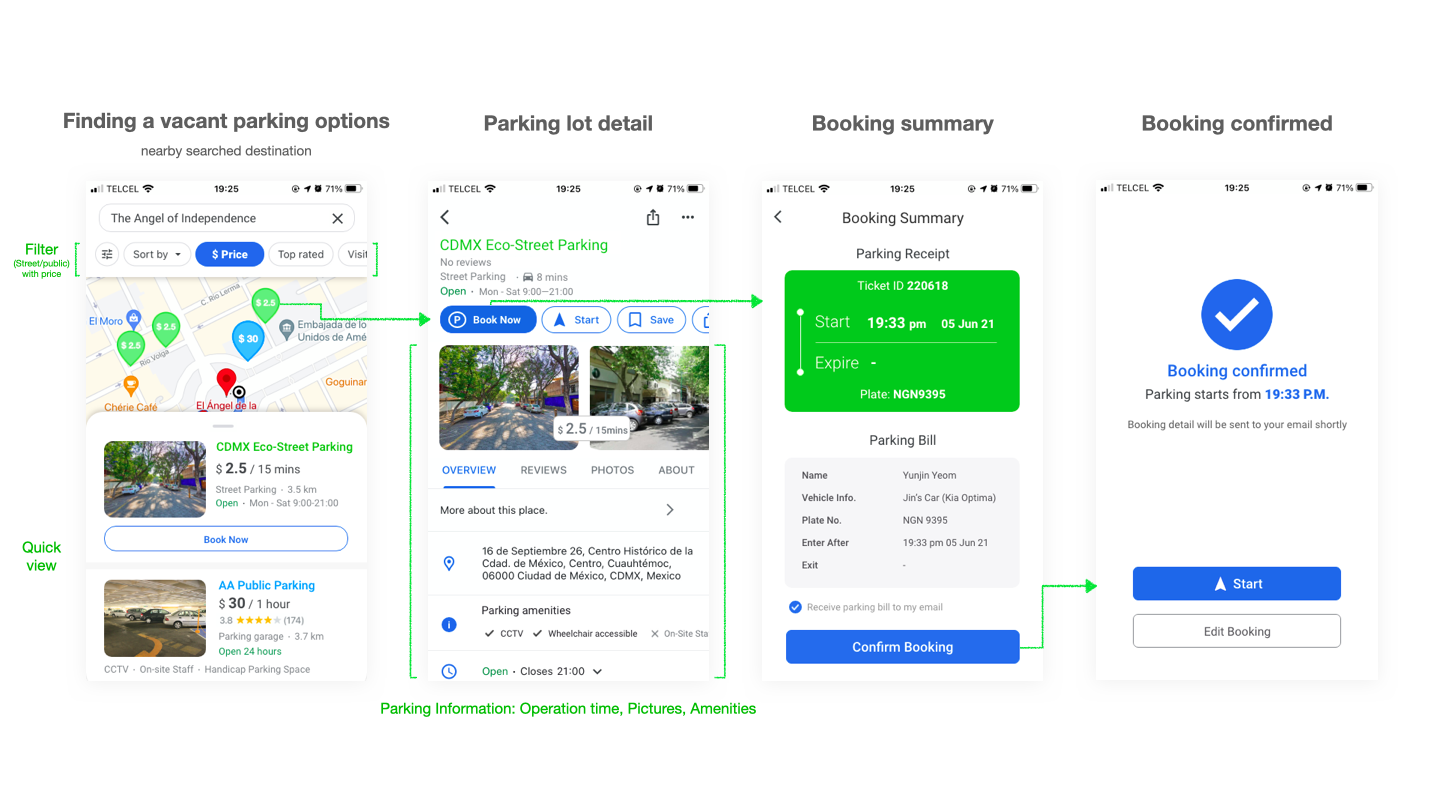
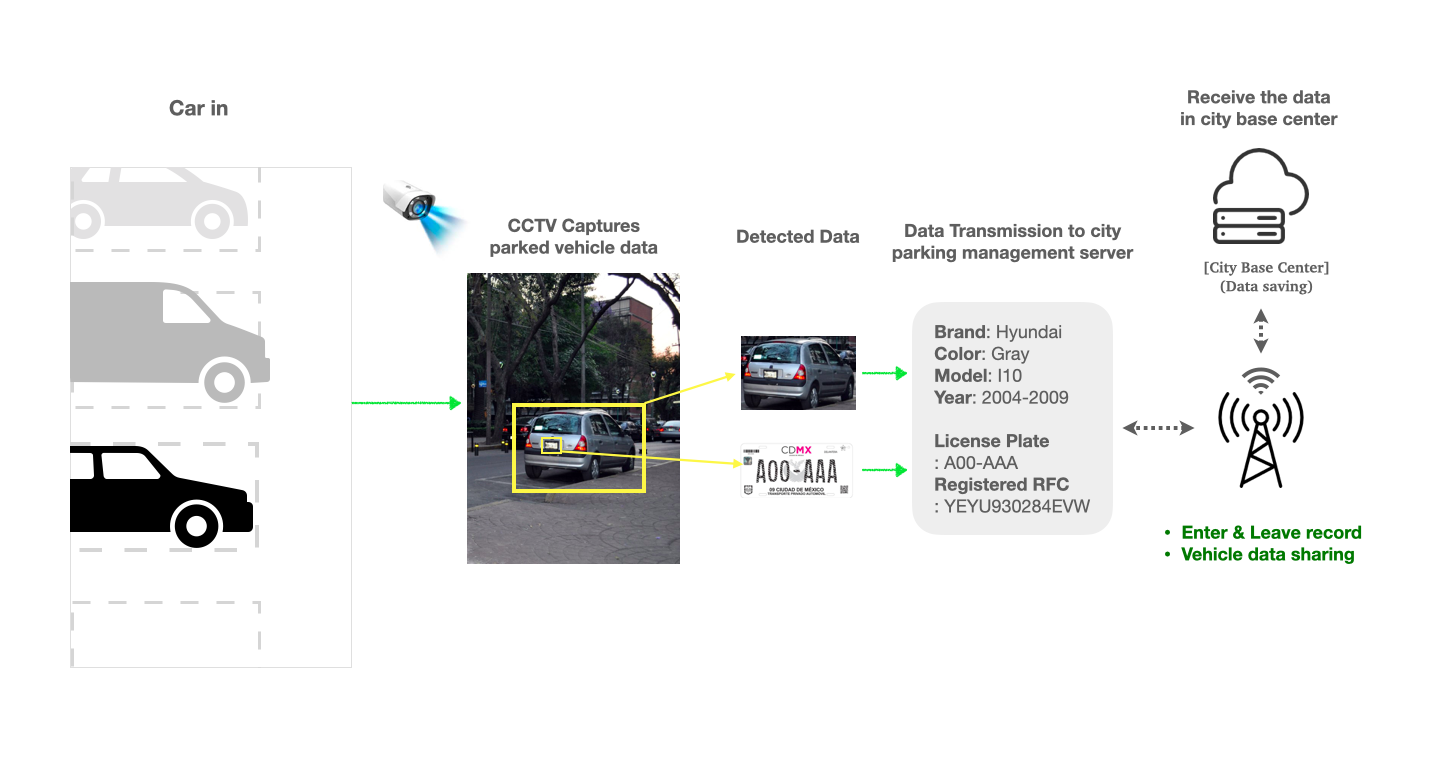
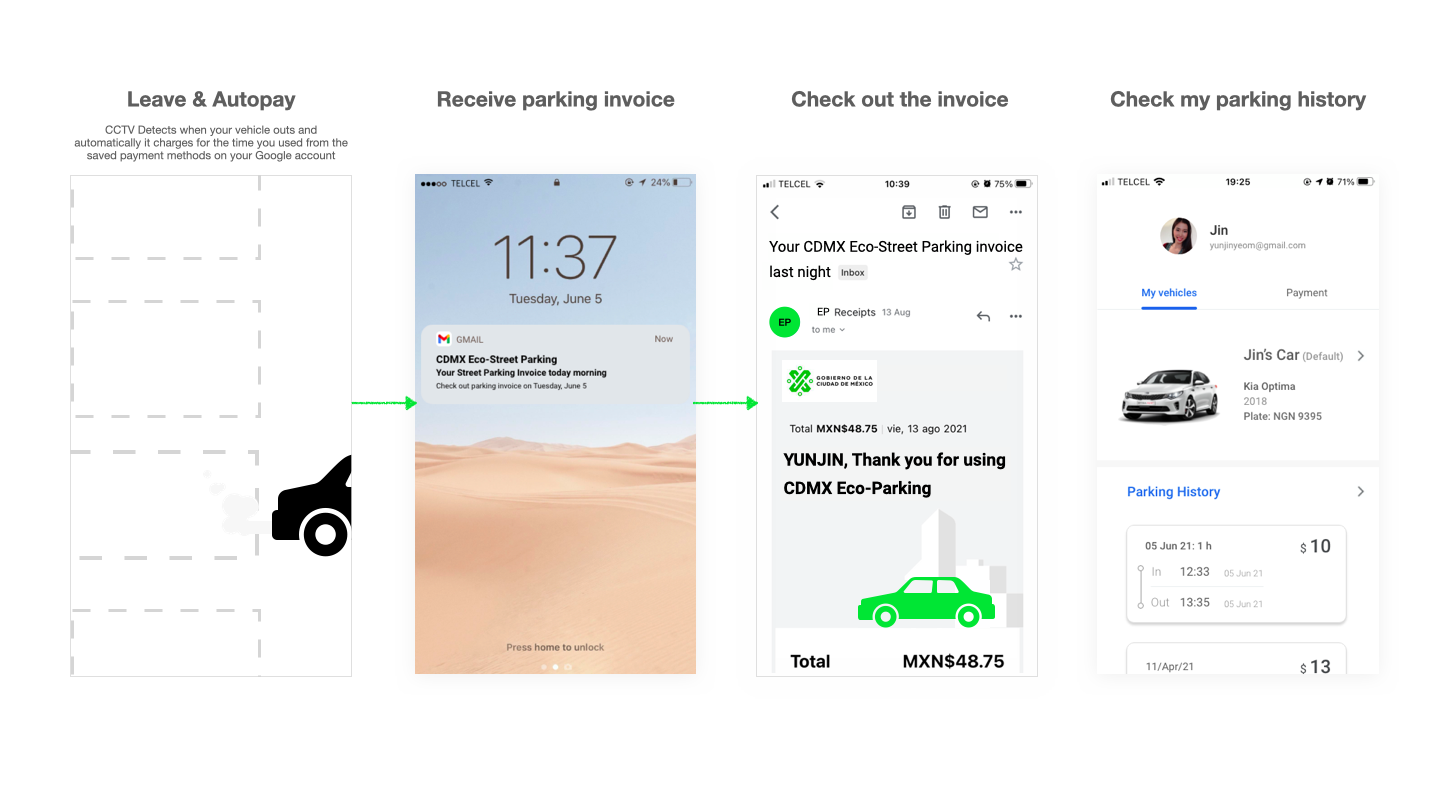
Follow-up
Reflection
What I learned from this project…
Keep it up! Even when you feel like you’re not good enough.
In the early stage, I felt that I may not be good enough, or that I may not be able to complete it, because it didn’t go as I planned. However, I kept going and realized that it helped me pull out the best possible outcome.
Ask for specific feedback and follow up question
I learned that iterating usability test is important, but asking for specific feedback is even more important because they help me grow. Especially, ‘why, what, and how; these follow-up questions allowed me to dig deeper into user thoughts and opinions.
More work…






















